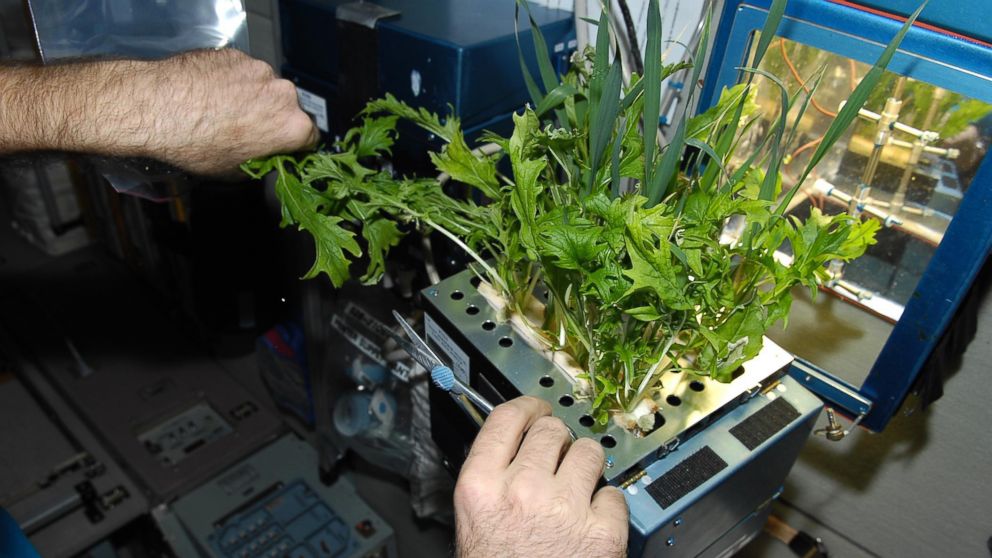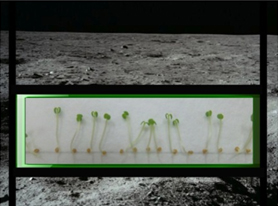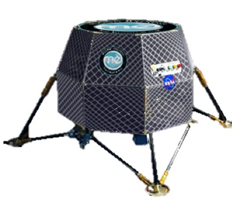Spaced based gardening? As a test of the harshest conditions for supporting life, NASA is planning on experiments to grow cress, turnips and basil on the moon. The challenge – a temperature differential of +150° F on the sunny side and -150° F on the dark side of the moon. Via NPR, quoting NASA plant scientist Bob Bowman: “This will be the very first life science experiment performed in deep space… Our goal is to show that the living organism can thrive in what really is a hostile environment.” Experiments have already been conducted on the Space Station, as seen below:
The ability to germinate (seeds on nutrient rich ‘paper’ media – plus air and water) and continue to grow, may give some indication of survivability on other worlds, while also potentially providing a diversion from freeze dried food for long-term stays. The pods of contained terrariums will be lifted in the Moon Express lander, and monitored for the above germination, as well as phototropic qualities and a new term for me, circumnutation, which “shows that Earth-normal endogenous growth patterns and growth rates are expressed in lunar conditions”
Check out a video here, a brief story from NPR here, and the official NASA statement. which explains they are:
…constructing a small technology demonstration unit to study germination of plants in lunar gravity and radiation on the Moon. The self-contained habitat will have a mass of about 1 kg and would be a payload on a commercial lunar lander – the Moon Express lander, part of the Google Lunar X-prize competition. After landing in late 2015, water will be added to the seeds in the module and their growth will be monitored for 5-10 days and compared to Earth based controls. Seeds will include Arabidopsis, basil, and turnips. This will be the first life sciences experiment on another world and an important first step in the utilization of plants for human life support. Follow up experiments will improve the technology in the growth module and allow for more extensive plant experiments.


